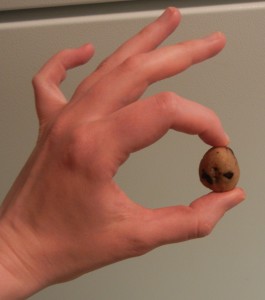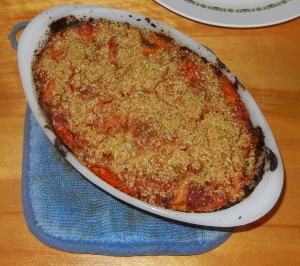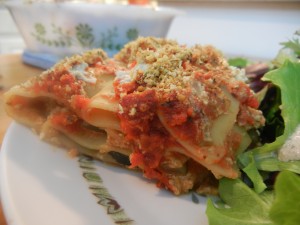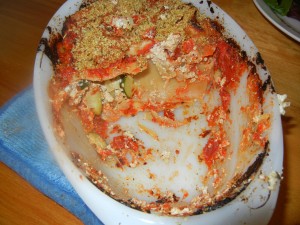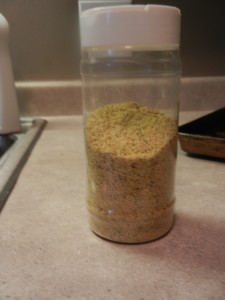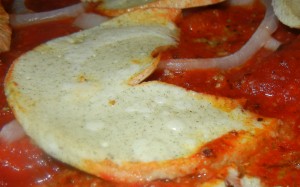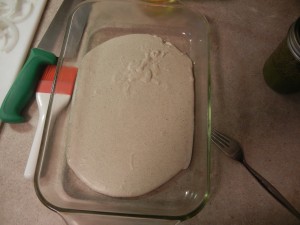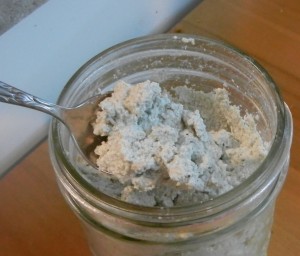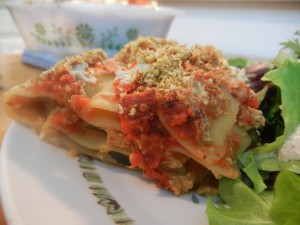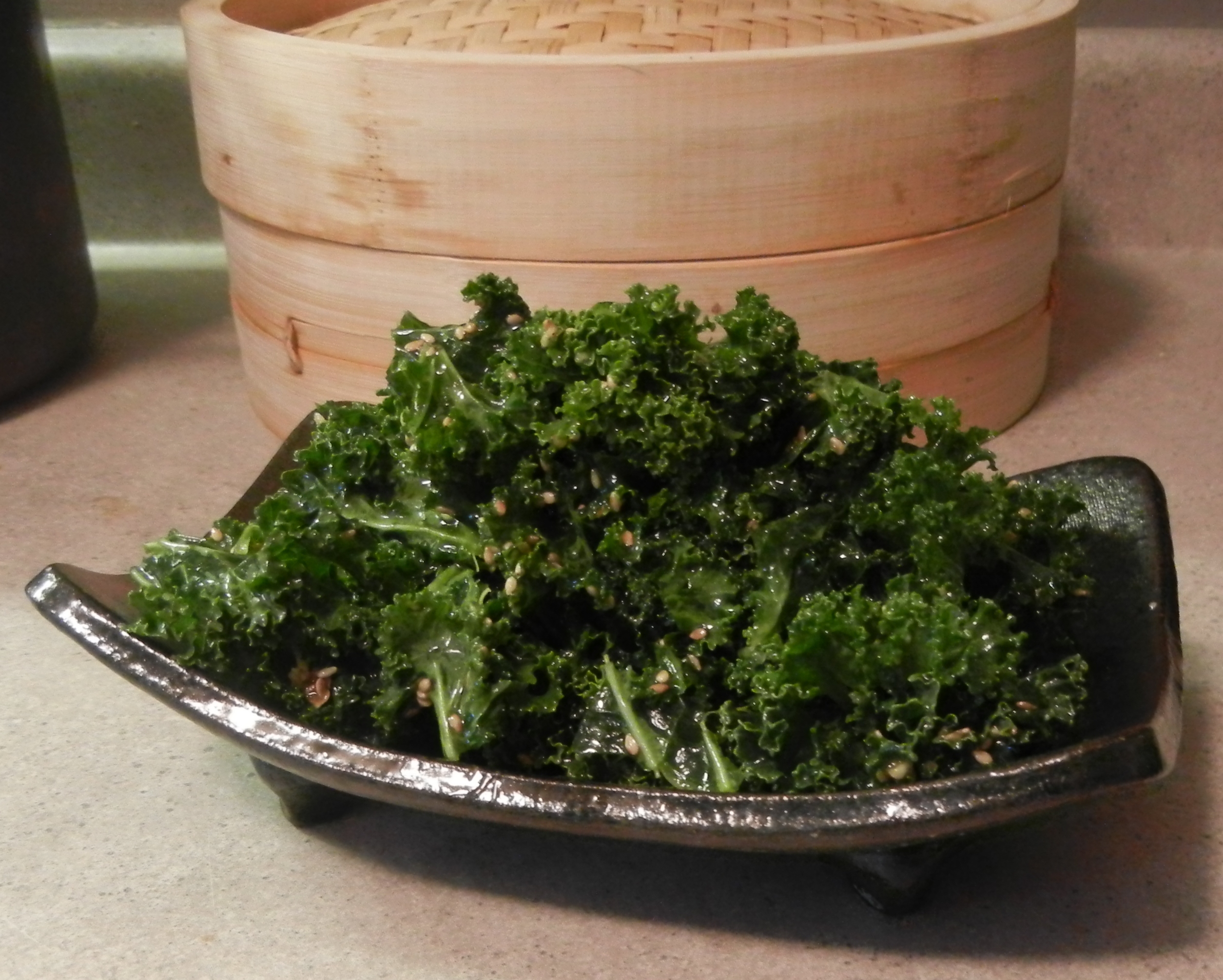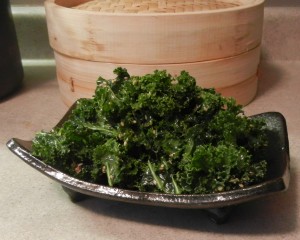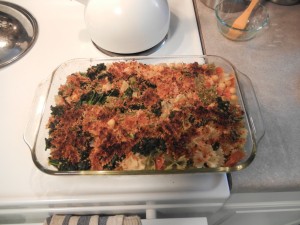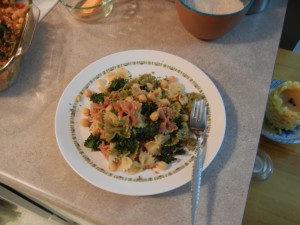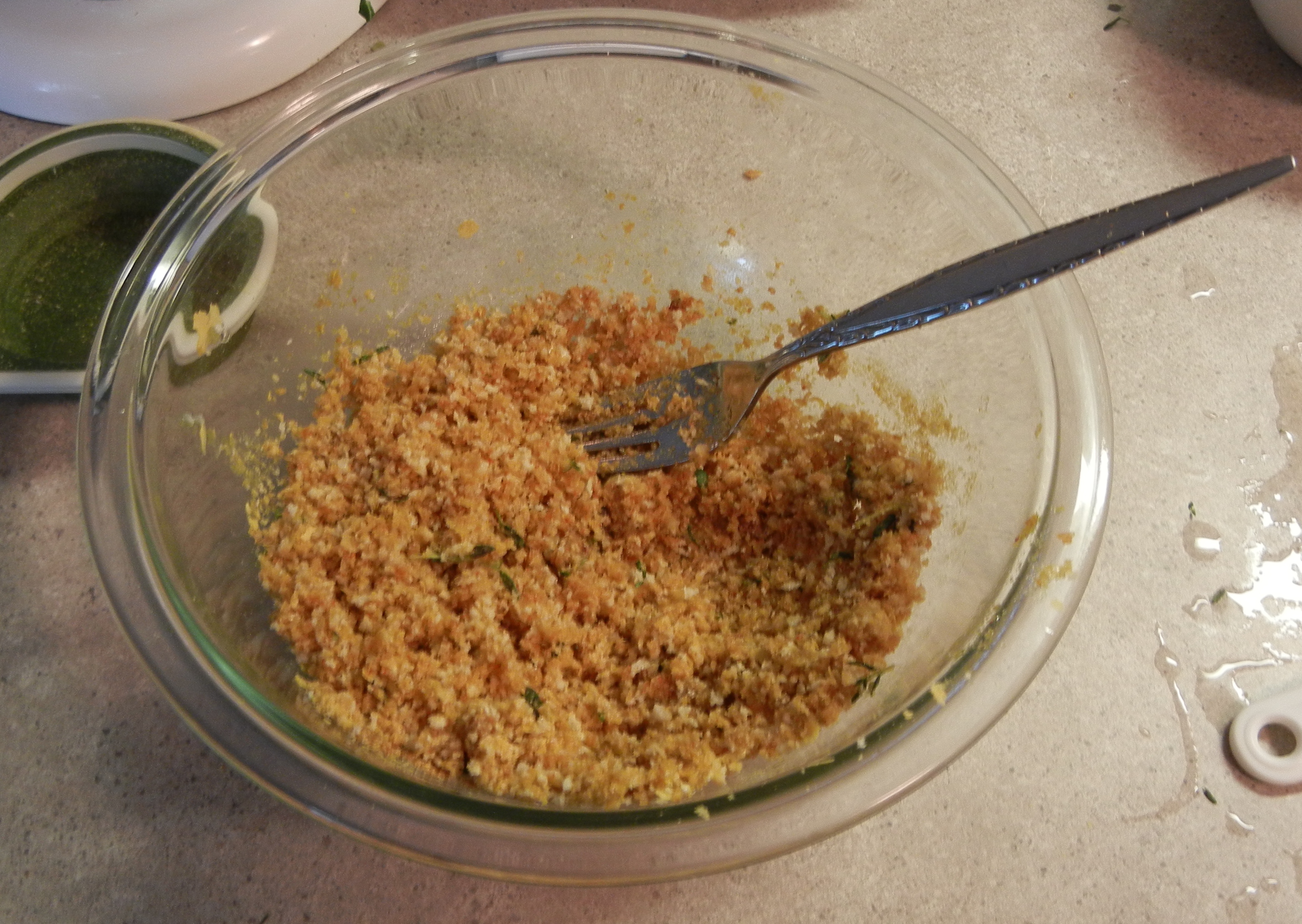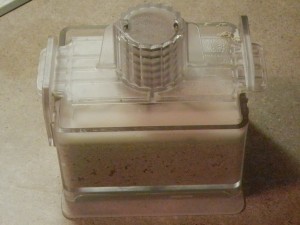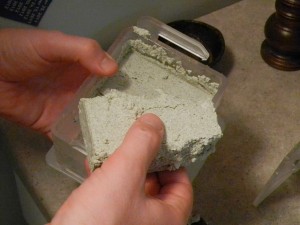
 I recently checked out Carolyn Scott-Hamilton’s The Healthy Voyager’s Global Kitchen: 150 Plant-Based Recipes From Around the World from the library. I was surprised how short the waitlist for it was, given that it was published in 2012. Right now, in the Hennepin County library system, where there are likely to be 10 or more copies of a popular vegan cookbook with a waitlist of 50 or more patrons, there are only 4 copies that are all checked out and a waitlist of 3.
I recently checked out Carolyn Scott-Hamilton’s The Healthy Voyager’s Global Kitchen: 150 Plant-Based Recipes From Around the World from the library. I was surprised how short the waitlist for it was, given that it was published in 2012. Right now, in the Hennepin County library system, where there are likely to be 10 or more copies of a popular vegan cookbook with a waitlist of 50 or more patrons, there are only 4 copies that are all checked out and a waitlist of 3.
The cover doesn’t look all that promising, but I have to admit, I have never seen a cookbook with recipes “from around the world” that impressed me—vegan or otherwise. The whole endeavor of global cooking smacks of tourist privilege. And here I mean “tourist” in the worst possible sense—one who doesn’t speak the language or make sincere attempts to understand the culture—they just want to swoop in, surround themselves with all the comforts of home and have an “exotic” experience that will impress their Facebook friends. Harsh? Yes, and not necessarily fair. But in the interest of full disclosure, this is my bias that The Healthy Voyager’s Global Kitchen was up against.
The book has 150 vegan recipes and I counted 53 full-page, full-color photos of featured recipes. That many pictures (they’re the kind that make you want to drop everything and make the featured recipes, by the way) in a vegan cookbook is notable. Another feature that stood out right away was a helpful legend that makes it easy to tell if a dish is gluten free, soy free, low fat, low glycemic, kosher, and/or raw.
The introduction is two pages long and pretty functional. I like that. I have little use for a lengthy introduction that incorporates the author’s long-winded philosophy of the good life and detailed arguments about being vegan or a lengthy story of how the author became vegan. Scott-Hamilton’s introduction provides a quick orientation to the book and lets me know how she approaches cooking and eating. The first chapter is called “Stocking a Global Kitchen”. I usually skip sections like these, but I noticed this section not only lists products you can buy at the store but also recipes for stock, spice mixes, condiments, and other elements. I will very likely try the recipe that appears there for Worcestershire sauce alternative (so keep your eyes peeled for my notes on that recipe). This chapter also includes shopping and kitchen tips—again, it is brief and functional. I’m not in the habit of reading sections like this, but for the sake of this review, I read this one and was torn between responding, “I know, I know” and “Preach it, sister!”. The tips seem concise and helpful; I think they’d be spot-on for beginners.
On to the main event—recipes! There are 17 regions which each have a chapter: USA, Latin America, Caribbean Island Nations, United Kingdom, Spain, France, Switzerland, the Netherlands and Denmark, Italy, Germany, Greece, Russia, The Middle East, Africa, India, China, Thailand and Vietnam, and Japan.
My main question as I pick up a new global cookbook is, are the recipes authentic or are they Americanized? While I love global cooking and food, my first-hand experience with authenticity is with USA, United Kingdom and China. I opened the book up to the China section and landed on a recipe for Spicy Mapo Doufu (Zesty Tofu and Seitan Stew). Because my sweetie pie and I have been working on a hemp tofu recipe lately and because we recently got some Sichuan peppercorns, Mapo Tofu has been on our list to try. We may be adapting this recipe soon, so stay tuned. First of all, I was heartened to see that the most important ingredient for mapo tofu was included: freshly ground Sichuan pepper. I find it interesting that the author chooses the Mandarin Chinese pinyin romanization for tofu (“doufu”) instead using the English word “tofu” but uses the English word “Szechuan” (which comes from the Wade-Giles romanization of “Sichuan”). I digress; this is a blog about cooking, not about linguistics. Scott-Hamilton says that cayenne pepper can be substituted if Sichuan pepper isn’t available. It would be a completely different recipe in that case since, as you may recall from my entry for Sichuan Pepper Vegan Prawns, Sichuan peppercorns add a mouth sensation (something along the lines of numbing) as well as a flavor. I’m being picky though. I’m looking forward to trying this recipe and I think it will be delicious and authentic.
The book also contains recipes that I’ve been wanting to try for a while but haven’t found good vegan recipes yet or haven’t gotten around to working on veganizing them myself. For example: tiramisu, matcha green tea ice cream, and gyros. If this book were permanently on my shelf, I can see myself happily cooking through the recipes.
I don’t often get as excited about vegan cookbooks as I am about this one. While I haven’t tried any recipes yet, they look very promising. I tend to check out many books on vegan cooking from the library (I have 8 out at the moment), but I don’t own that many. In fact, out of curiosity, I just checked and noted that I own only 1 vegan cookbook. The Healthy Voyager’s Global Kitchen: 150 Plant-Based Recipes From Around the World is a book that, pending successful recipe testing, I hope to add to my permanent collection sometime soon.




